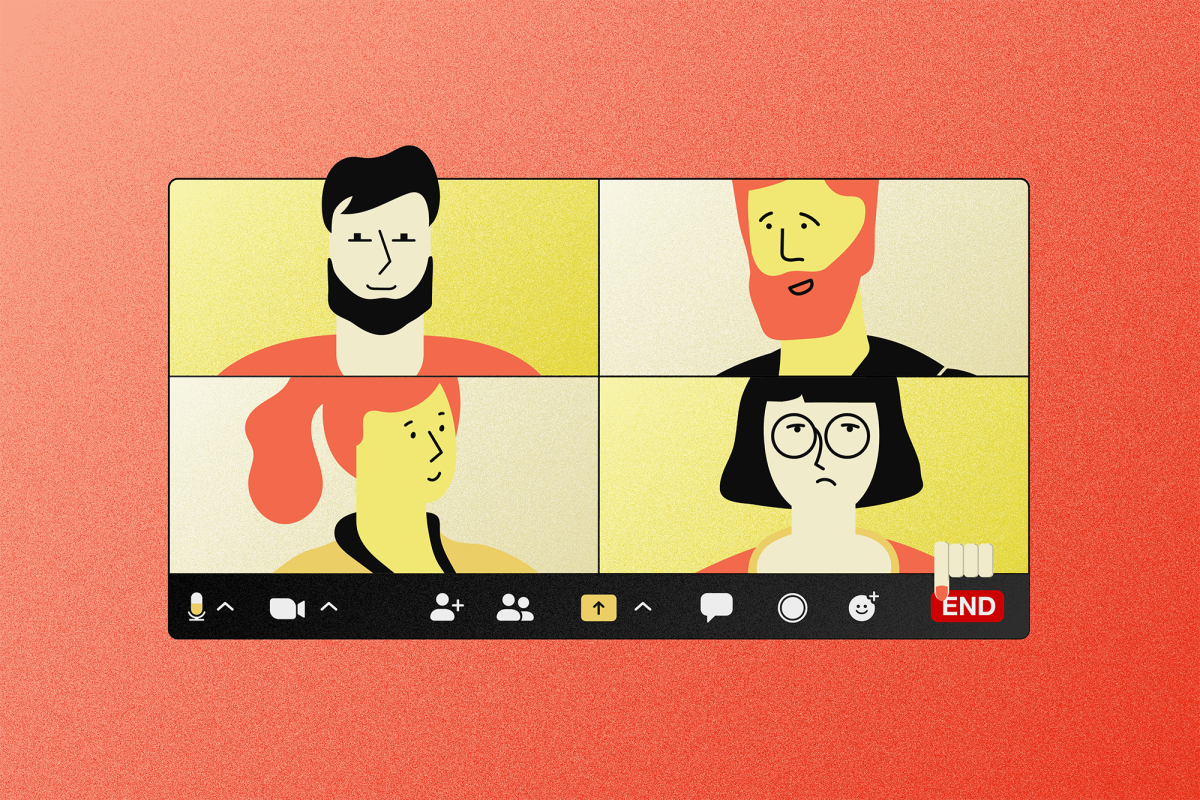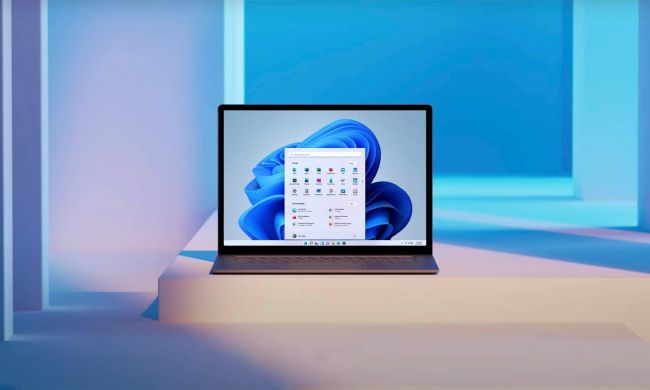
No, it’s not just you. Everyone is tired of Zoom right now.
- Why is it that virtual socializing feels more draining than doing it in person?
- What is the best way to get out of or end a Zoom call, even if the other person knows you have nothing going on?
- How many Zoom calls is too many?
- Why do Zoom calls seem mandatory right now?
- What is the biggest Zoom faux pas you see all the time?
Coronavirus has pushed millions of Americans inside, where we not only rely on screens and technology for work and learning, but to also fill the voids of entertainment and socializing.
In mid-March, when shelter-in-place orders were being mandated across the country, the rise of the popular videoconferencing app Zoom was profound. It was not only being used by educators and employers, but by friends and family members. People hosted dance parties, happy hours, concerts, and even church services.
But as weeks of self-isolation wore on, the prospect of yet another Zoom call now may seem crippling. And getting out of one may feel even more daunting, considering no one really has anything else to do.
Digital Trends spoke with two social behavior psychologists — Katherine Kinzler, a professor at the University of Chicago and author of the forthcoming book How You Say It; and Vivian Zayas, an associate professor at Cornell University — to find out why it all feels so exhausting … and how to get out of it.
Answers have been edited for clarity and consistency.
Why is it that virtual socializing feels more draining than doing it in person?
Kinzler: There’s tons of literature on how social isolation can be really hard for people. So I think in some ways that we’re in an unnatural state to begin with. We’re basically put in a situation where everything about social distancing is sort of going against our natural instincts. But I think it’s absolutely right to try to have social interaction, but the thing is that the social interactions were having or really an approximation, and they’re not what’s comfortable for us. We don’t have the same kind of shared common ground. It’s really hard to get that information virtually.
Zayas: I think one thing that’s underappreciated is the obvious, which is, we are social animals. When we’re physically sharing a space with another person, we’re communicating in various modalities. And as receivers, we pick up on a bunch of cues just by sharing the physical space.

All of that information goes away when we’re not sharing a space with someone. So when we’re using Zoom, we only get this two-dimensional representation. Usually, maybe it’s a headshot. It’s really depleted compared to the cues that we get where we’re actually with someone, all of those nonverbal cues. It’s harder over Zoom. It’s highly filtered. And I think we’re working a little bit harder to understand what the person is thinking. Are they excited about this or are they not excited? Sometimes we’re trying to pick up subtleties, and we don’t have much available and so we’re working a little bit harder. With that type of technology, there are delays, too.
“Whoever’s talking gets the stage and that’s exhausting.”
We spontaneously start to synchronize our movements when we’re in a group, and that is hard to do when computer-mediated, especially if there’s a little bit of millisecond lag. All that interrupts are flow and it interrupts the fluidity of our natural conversations. And so, we didn’t work a little bit harder to try to get going. And on Zoom, you’re on center stage when you’re talking, it’s like the video goes on you and whoever’s talking gets the stage and that’s exhausting. And people do become easily self-conscious. I just think it makes it more like you’re doing this big presentation rather than having a conversation.
What is the best way to get out of or end a Zoom call, even if the other person knows you have nothing going on?
Kinzler: Even though you’re sitting in your house, you’re being pulled in many different directions. I just think people feel like they’re really drained and I think it’s important to respect that about yourself, it’s OK to drop the ball sometimes, and then also to let other people drop the ball. One kind of general thing in psychology is this idea that sometimes it’s easy to feel like you’re the only person with this problem and everybody else has it together. But that is not the case.
How do you end a zoom, politely? You can't say "I have to run" or "I have plans" because they'll know it's a lie!
— Jeremy Hobson (@jeremyhobson) April 20, 2020
I think in this case, you could say to someone, “I just have a busy day, I’m feeling overwhelmed.” Or, “Can we push this back?” It’s easy to feel like someone would judge you but almost certainly you wouldn’t judge somebody else if they were saying that. People understand that it’s probably not healthy to sit in a chair and talk on Zoom for 12 hours a day.
Zayas: I think that’s just generally a really good question of how best do you exit because we’re sensitive to not wanting to make someone feel like you’re leaving them or rejecting them. At the same time, everybody knows that life is happening. Like dinner is happening, or you have another meeting. I think you need to manage the expectation of how long you hang out on Zoom. It’s easier to manage it before you’re in it than when you’re in it. It can feel like, “Oh, I don’t know exactly how to get out of the situation.”
And the other thing is to make it short and sweet. Change the tone to: “Well, it was really great catching up.”
How many Zoom calls is too many?
Kinzler: I think people should reflect on their own limits. If you’re feeling completely drained at the end of the day, maybe take that as a sign. Then, the next day, set up a different pattern.
It's OK to decline meeting invites. If you don't have an active role, politely decline and ask for the meeting notes to stay informed.
You'll end up being more productive with those 30 minutes or hour back vs. multi-tasking in the room or, in our current environment, on Zoom.
— Josh Rangel (@rangelie) April 30, 2020
Zayas: Different people will be able to deal with different amounts. I think one other reason why Zoom interactions may be challenging is that they’re now taking the place of actually having real interactions. Face-to-face meetings can be energizing. And to now have them all be on Zoom is less rewarding.
The whole psychology of being behind your computer the whole day, not moving and also interacting with other people behind the computer, it’s almost like you’re watching TV the whole day. You’re participating so it’s not passive, but there’s a sense that your world is two-dimensional for a big part of the day. That leads to boredom and feeling monotonous.
Why do Zoom calls seem mandatory right now?
Zayas: I think, in one sense, the technology is available, so why not use it? This is a great question: Do we get a lot more information by seeing the other person’s face versus just a phone call? We might get more from a phone call. I also think there’s a sense of denial of what’s happening. Like, “We are gonna try to continue on, and our life is not going to be disrupted.” We want a sense of normalcy. And that’s not a bad thing. We need something that signals that life is going to continue on. Routine is helpful, and so is a sense of community.
“I think there’s a sense of denial of what’s happening.”
What is the biggest Zoom faux pas you see all the time?
Kinzler: One thing that makes me nervous about virtual communication is that I think it’s sometimes harder to know when the right time to step in. If you’re in a group conversation, you read the cues of the room, by reading how one person postures their body, that’s one way to suggest that they want to step in. That social nuance is really hard on Zoom. And so, it does worry me that people who might feel less confident with this new space than others won’t always be fair.
Zayas: Muting is important. If you’re the only one that’s not muted, and for whatever reason, there’s noise coming in through your audio, the noise is disruptive and it’s already a difficult situation, and it’s just making it worse. So I think knowing the norms that are developing about how you interact on Zoom are important.



